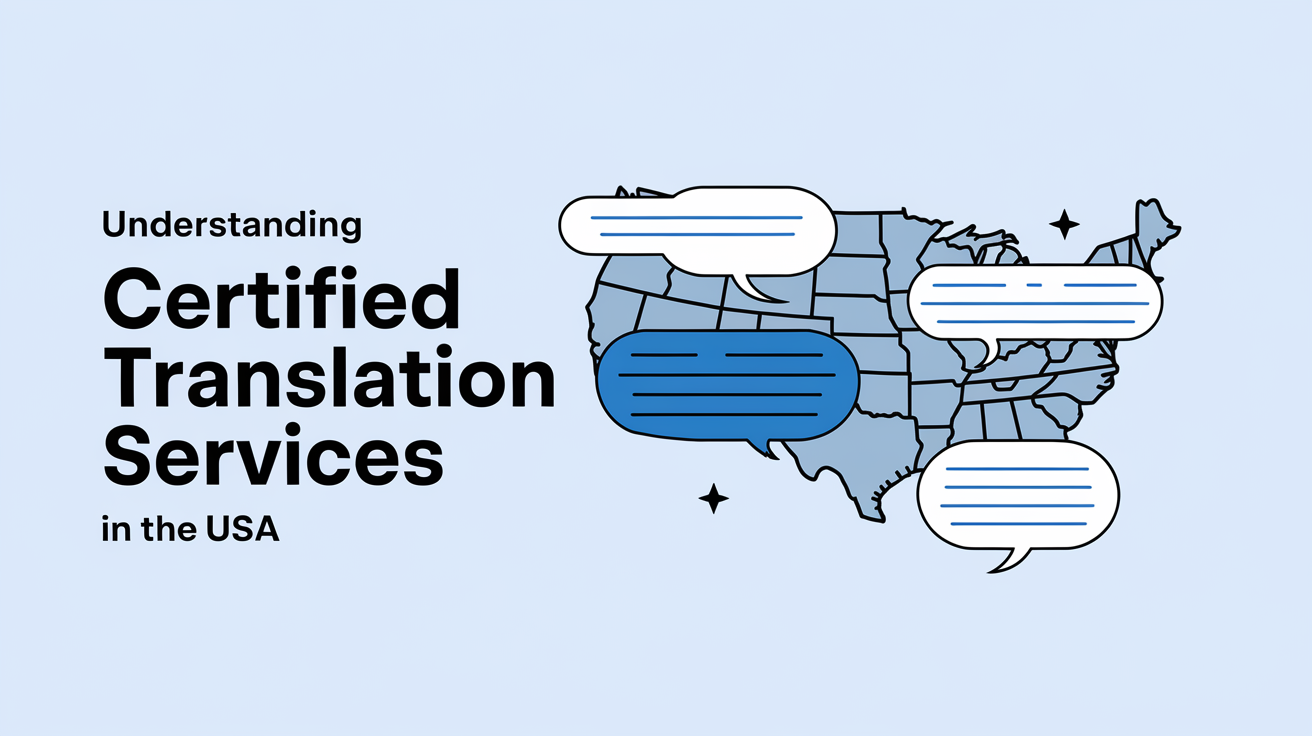Introduction to Certified Translation Services
In a globalized world, accurate translation plays a crucial role, especially in the USA, where multiculturalism thrives. Certified translation services ensure that documents meet the required accuracy and legal standards. These services are vital for legal, business, educational, and immigration purposes, where the integrity of a translated document cannot be compromised.
Understanding certified translations helps individuals and organizations ensure compliance with U.S. regulations and facilitates smoother communication across borders.
What Is a Certified Translation?
Defining Certification in Translation
A certified translation refers to a translated document that is accompanied by a signed statement from the translator or a translation company. This statement attests that the translation is accurate, complete, and true to the original document. In the USA, certified translations are often required for official submissions.
Differences Between Certified, Notarized, and Sworn Translation
- Certified Translation: A translator certifies the accuracy and completeness of the document.
- Notarized Translation: A notary public verifies the translator’s identity but does not confirm the translation's accuracy.
- Sworn Translation: Common in some countries, it requires a sworn translator appointed by the government to complete the work.
In the USA, certified translations are often the standard requirement for legal and immigration processes.
Why Are Certified Translation Services Important?
Certified translations play a vital role in scenarios where accuracy is non-negotiable. Here’s why they are important:
Legal Requirements
For immigration, legal proceedings, or court filings, documents must meet legal translation standards to be accepted. Any inaccuracies can lead to delays, rejections, or legal consequences.
Business and Academic Use
Certified translations ensure that businesses comply with international standards when operating in foreign markets. Similarly, academic transcripts, diplomas, and research papers must be translated accurately for recognition abroad.
Who Needs Certified Translation Services?
Immigration Applicants (USCIS)
When applying for a visa, Green Card, or citizenship through the U.S. Citizenship and Immigration Services (USCIS), certified translations of documents like birth certificates, marriage licenses, and police records are mandatory.
Students Applying Abroad
International students submitting applications to U.S. educational institutions must provide certified translations of transcripts, diplomas, and recommendation letters.
Legal Professionals
Lawyers often require certified translations for contracts, affidavits, wills, and other legal documents to meet U.S. court standards.
Businesses Expanding Globally
Companies venturing into international markets need certified translations for legal agreements, marketing materials, and financial reports.
How to Identify a Certified Translation Provider
Finding a reliable certified translation provider ensures you meet legal and official requirements. Here’s what to look for:
Qualifications and Credentials
- The translator should be experienced and certified to provide professional translations.
- Look for translators who are ATA-certified (American Translators Association) or members of recognized professional bodies.
Membership with Professional Associations
Providers associated with reputable translation organizations adhere to quality standards. These memberships guarantee that you are hiring trusted experts in certified translations.
The Process of Getting a Certified Translation
Step-by-Step Breakdown
- Submit Your Documents: Share the original document requiring translation.
- Choose a Trusted Provider: Ensure they meet certified translation criteria.
- Translation Process: A qualified translator works on the document.
- Certification Statement: A signed statement of accuracy is attached.
- Delivery: Receive your certified translation in a printed or digital format.
Common Documents for Certification
- Birth and marriage certificates
- Academic diplomas and transcripts
- Legal contracts and affidavits
- Immigration records
Certified Translation vs. Notarized Translation
Key Differences and When You Need Each
- Certified Translation: Ensures accuracy and is typically required for immigration, academic, and legal purposes.
- Notarized Translation: Involves a notary public verifying the translator’s identity, often required for certain legal proceedings or financial documents.
If you’re unsure, consult the organization requesting the translation.
Where to Use Certified Translations in the USA
Certified translations are widely used across multiple domains. Here are the most common areas:
USCIS and Immigration Processes
Documents like birth certificates and passports must be certified for USCIS to approve immigration requests.
Court Systems and Legal Proceedings
Legal documents submitted as evidence or official filings require certified translations to maintain integrity in court.
Educational Institutions
Transcripts, diplomas, and credentials must be accurately translated for admission processes and evaluations.

